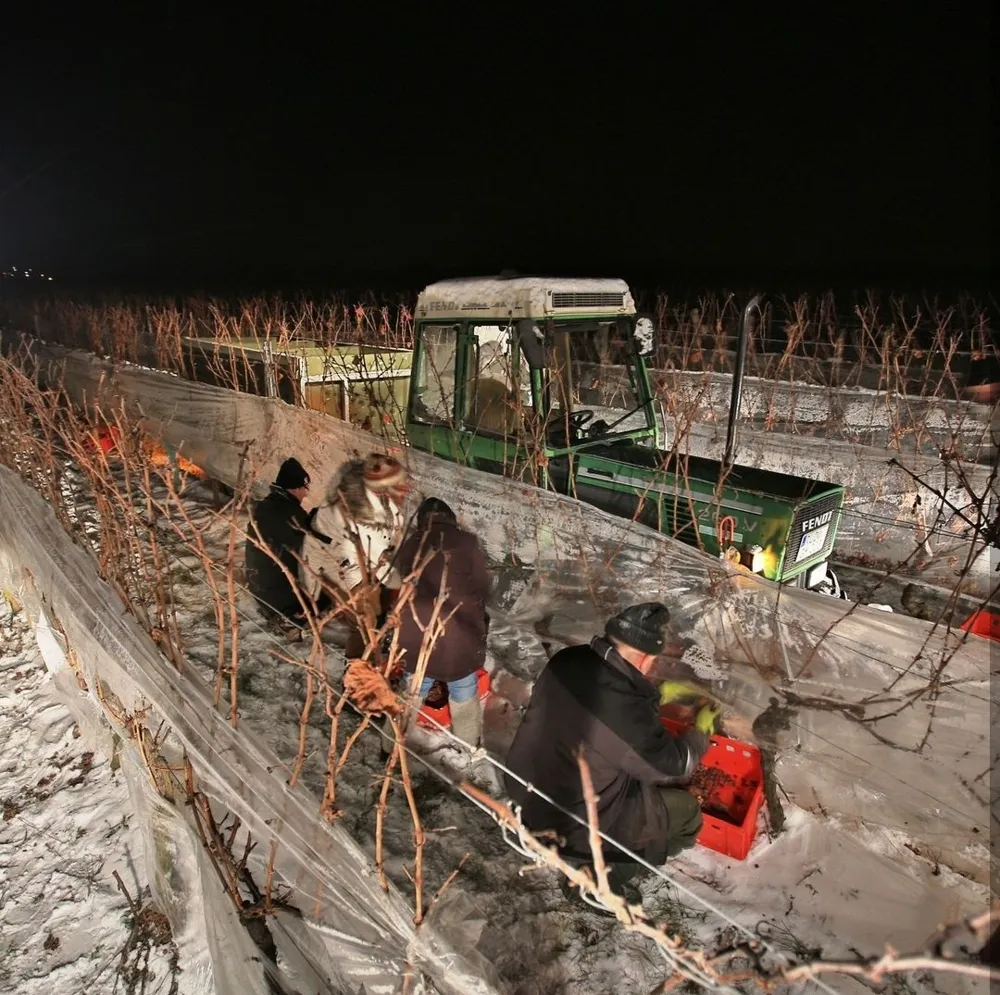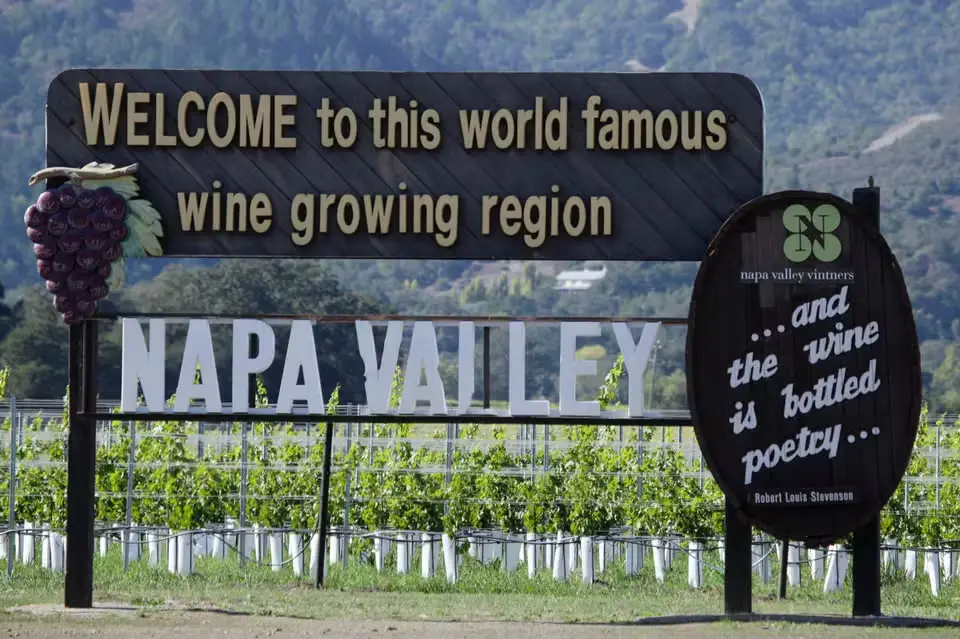❄️Icewine Harvest in Germany a success for 2023 ❄️
Considering Eiswein in the Era of Climate Change
This season, German wineries embarked on a golden quest, playing a daring game with their grapes to achieve temperatures below -7°C (19.4 °F) for the coveted harvest of Eiswein, a liquid gold delicacy. In an era dominated by climate change discussions, the unpredictability of weather patterns adds an extra layer of excitement to this age-old winemaking practice.

Eiswein Essence: A Risky Affair
Eiswein, also known as Ice Wine, presents an exhilarating challenge for German winemakers, demanding specific conditions for a triumphant harvest. With climate change casting shadows over traditional winemaking practices, the gamble becomes riskier, testing the mettle of those willing to take the plunge. The result of this season's gamble? Only time will tell.
Cracking the Code of Eiswein Success
The key to Eiswein success lies in an early harvest during frosty temperatures. The recent winter chill, with temperatures plummeting to -7°C (19.4 °F) and below, allowed vineyards across the country, from Rheinhessen to Württemberg and Franken, to partake in the frozen grape ritual. For Eiswein, the grapes must be thoroughly frozen, necessitating sustained temperatures of at least -7°C over several hours. The overripe grapes are meticulously handpicked and pressed, yielding the luscious nectar that is Eiswein.
The Eiswein Poker – A High-Stakes Game
Yet, Eiswein remains a risky business for winemakers. The ever-present challenge lies in the dependence on sufficiently cold temperatures. A failure to achieve this could result in a total loss for wineries, making every harvest a high-stakes game. Over the years, the registered vineyard areas for Eiswein have witnessed a decline, reflecting the cautious approach of winemakers amidst changing climate dynamics.
Harvest Tales Across Germany
In the beginning of December 2023, Germany embraced the first cold wave of the winter season. In Rheinhessen, the Weingärtnergenossenschaft Metzingen-Neuhausen reported a harvest of approximately 400 kg of grapes, yielding 70 liters of must with 140°Oe - that's pretty sweet! Similarly, the Andreas Braun winery in Volkach, Franken, faced the icy temperatures to gather frozen grapes, resulting in about 200 liters of Riesling. These tales echo the dedication and risk-taking spirit of winemakers determined to unlock the secrets of Eiswein.
Franconia: A Changing Landscape for Eiswein
According to the Franconian Winegrowers Association, Eiswein production is on the decline in Franconia (Franken), Bavaria. This shift is attributed to the warming winters, where frosty temperatures often arrive later, in January or February. In 2012, approximately 40 wineries could boast an Eiswein harvest, but by 2022, only seven producers managed to gather approximately 600-700 liters of this coveted yield. The changing landscape signifies a shift in winemakers' strategies as they adapt to the evolving climate.
The Critical Temperature
For a successful Eiswein harvest, the grapes must endure thorough freezing, requiring temperatures of at least minus seven degrees Celsius, or 19 Fahrenheit, sustained over several hours. Winemakers patiently await the opportune moment to harvest these overripe, frozen grapes, pressing them to extract the sought-after nectar. The magic lies in the delicate balance of nature's forces, ensuring that the grapes freeze naturally before the harvest.
As climate change continues to reshape the winemaking landscape, the future of Eiswein in German vineyards hangs in the balance. Winemakers find themselves at a crossroads, weighing the risks against the rewards in this timeless tradition.
Will the decline in Eiswein production persist, or will innovative approaches emerge to counteract the impact of warmer winters? The answer remains uncertain, and only time will unveil the fate of this rare and exquisite winemaking adventure in the face of a changing climate.
In the world of Eiswein, where there's no risk, there's no fun. His holidays, you can reward the efforts of the winemakers by enjoying a glass of icewine yourself!
Lotte Gabrovits



